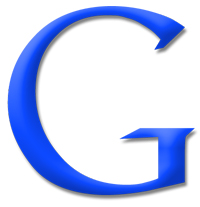Google Says Knowledge Graph Has Led To More Searches
Searches are up in the two weeks since Google launched Knowledge Graph, its database of facts that adds context to a variety of search results. Although the company didn’t share specific numbers, Google Fellow Amit Singhal told the Wall Street Journal that “people are interacting with it [the Knowledge Graph] more” and “doing more [search] […]

Although the company didn’t share specific numbers, Google Fellow Amit Singhal told the Wall Street Journal that “people are interacting with it [the Knowledge Graph] more” and “doing more [search] queries.” Those comments were made Friday, and Google spokesperson Jason Friedenfelds told the WSJ on Tuesday that internal stats show that users are still “doing more searches as a result” of Knowledge Graph.
That makes perfect sense since the Knowledge Graph is designed not only to help provide context and answer search questions, but also to encourage users to do more Google searches. Consider the Knowledge Graph box that appears on a search for Peter Carl Fabergé, the subject of a special Google doodle today, where the image is a Google image search link, all ten text links near the image lead to new Google searches, and there are five more search links in the “People also search for” section. Only the light gray “Wikipedia” text is a link that leads away from Google.
So, really, it’s pretty much a no-brainer that the Knowledge Graph would create more Google searches.
Singhal also tells the WSJ that more search activity means Google is sending more traffic to other websites. A Wikipedia spokesperson is quoted in the article as supporting Google’s use of Wikipedia content in the Knowledge Graph, but didn’t have any data to indicate if Google has sent more traffic over the past two weeks.
More Google searches also means more chances for search ads to show. Singhal didn’t share any statistics about ad performance with the WSJ since Knowledge Graph launched (and as the head of Google’s search quality team, that’s not his job to know), but he did say that Google is “experimenting” with how to display search results that have “numerous ads” as well as a Knowledge Graph box.
Contributing authors are invited to create content for Search Engine Land and are chosen for their expertise and contribution to the search community. Our contributors work under the oversight of the editorial staff and contributions are checked for quality and relevance to our readers. The opinions they express are their own.
Related stories
